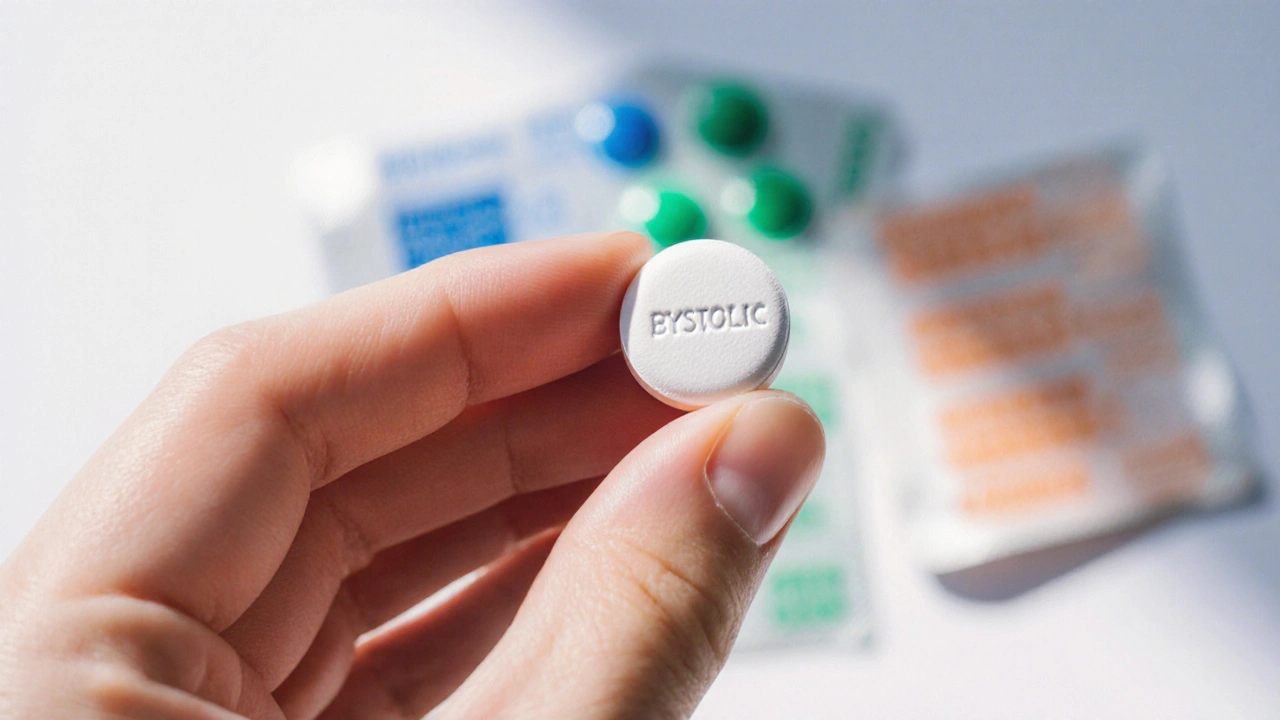Blood Pressure Medication: What You Need to Know
High blood pressure can sneak up on you, but the right meds keep it in check. Whether you’re new to treatment or just want a refresher, this guide breaks down the most common drugs, how they work, and simple steps to stay safe.
Common Types of Blood Pressure Drugs
First up are ACE inhibitors. They relax blood vessels by stopping a hormone that tightens them. Lots of people start here because they’re easy on the stomach. If you feel a dry cough, your doctor might switch you to a similar class called ARBs.
Beta blockers, like Bystolic, slow the heart rate and lower the force of each beat. They’re a good pick if you also have heart rhythm issues. Some folks feel extra tired at first, but the benefit of steadier blood pressure often outweighs that.
Diuretics act like a gentle water pill. They help your kidneys get rid of excess salt and fluid, which drops pressure. Thiazide diuretics are the most common, and they work well when paired with another drug class.
Calcium channel blockers keep the muscles in your artery walls relaxed. This widens the vessels and lets blood flow more easily. They’re especially helpful for people of African descent who often respond better to this group.
Finally, there are ARBs—angiotensin receptor blockers. They block the same hormone ACE inhibitors target, just at a different spot. ARBs tend to cause fewer coughs, making them a popular fallback.
How to Take Them Safely
Timing matters. Some meds work best in the morning, others at night. Follow the label or your doctor’s advice, and try to stick to the same time each day to keep levels steady.
Watch your diet. Too much salty food can counteract the effect of diuretics and ACE inhibitors. Cutting back on processed snacks and adding more fresh veggies helps the medication do its job.
Check your blood pressure regularly. A home cuff lets you see if the drug is working or if you need a dose change. Write down readings and share them with your healthcare provider.
Know the side effects. Common ones include light‑headedness, a persistent cough, or a slightly slower heartbeat. If you notice swelling, sudden weight gain, or severe dizziness, call your doctor right away.
Never stop a medication abruptly. Even if you feel great, the drug is still keeping your pressure down. Talk to your doctor before making any changes; they’ll taper you safely if needed.
Keep an updated list of all the pills you take, including over‑the‑counter meds and supplements. Some herbal products can raise blood pressure or interfere with how your prescription works.
Lastly, stay in touch with your doctor. Blood pressure can shift over time, and your regimen might need tweaking. Regular check‑ups are the best way to keep the numbers in a healthy range.
Understanding how blood pressure medication works and following a few practical tips can make a big difference in your health. Stick to the plan, watch for reactions, and keep the conversation open with your healthcare team—you’re on the right track.

Bystolic (Nebivolol) vs. Other Hypertension Drugs: Complete Comparison
A detailed, human‑written comparison of Bystolic (nebivolol) with other blood‑pressure drugs, covering how it works, pros and cons, and when to choose it.

Chlorthalidone and Cancer Risk: What the Research Really Shows
This article digs into the research behind the connection between chlorthalidone, a common blood pressure medication, and the risk of cancer. You'll find a clear, engaging discussion about current scientific studies, their strengths and weaknesses, and what all this means for people taking the drug. Real-world tips and practical facts are woven in to help you understand the topic better. Whether you’re a patient, caregiver, or just curious, this piece aims to bring clarity. It’s a must-read for anyone who wants fact-based, easy-to-follow information about chlorthalidone and its potential health impacts.